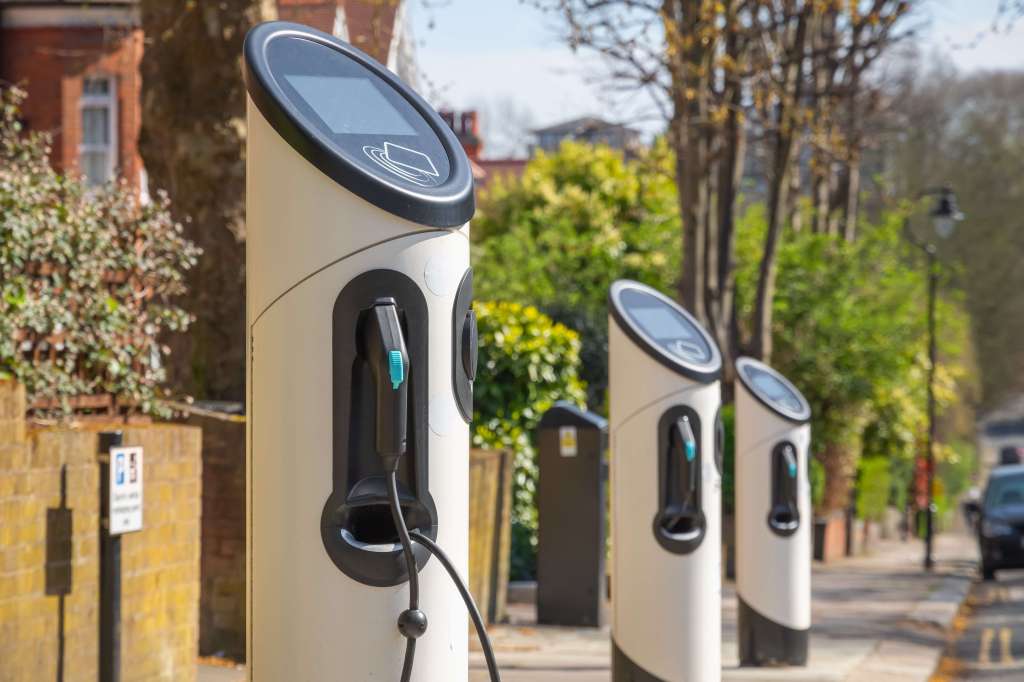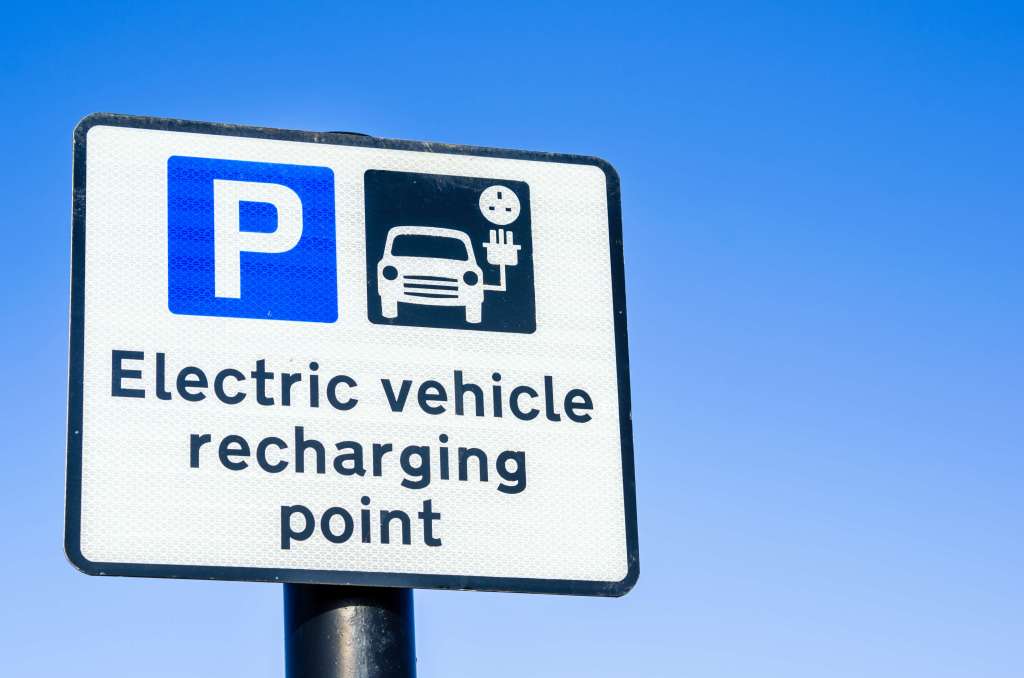Electric vehicles for business have been increasing in popularity in recent years due to their environmental benefits, lower running costs, and a range of government incentives. And with the latest government eclectic car grants, now could be a great time to invest in one.
Read on to find out more about the pros and cons of having an electric vehicle for your business, as well as a rundown on some of the best electric business cars and vans.
Can businesses get grants for electric cars and vans?
The government launched a new electric car grant on 16 July 2025 to make it cheaper to own an electric vehicle. Grants of £1,500 or £3,750 are available towards the cost of new cars bought for £37,000 or less.
Find out more about the grants and check the list of eligible vehicles.
There’s also the government’s Plug-in Van Grant, which launched in 2012 and is open for applications until 31 March 2026. This offers a discount of up to £2,500 on eligible small vans and up to £5,000 for eligible large vans. Some trucks can be sold at a 20 per cent discount.
The pros and cons of electric cars and vans for business
Electric vehicles have many financial and environmental benefits for businesses. However, there are some cost and performance downsides that you’ll need to consider.
What are the advantages?
- the running costs are much lower – charging an electric vehicle could cost you a fraction of what you’d usually be spending on fuel
- there are clear environmental benefits – one electric car can save approximately 1.5 million grams of CO2, according to EDF Energy
- there are tax benefits for business owners who have electric vans and vehicles
What are the disadvantages?
- most electric vans won’t be able to travel as far as diesel or petrol vehicles without needing to be charged
- it’s likely you’ll need to install a charging point at home or at work, which is an extra cost to consider
- the initial cost of buying an electric car or van for your business is likely to be higher than buying a petrol or diesel vehicle
Travel incentives for electric vehicle owners
If you have to travel into urban areas for work, there’s a range of benefits to having an electric van or car:
- in London, electric vehicle owners don’t have to pay the congestion charge, saving £15 a day (until 24 December 2025)
- you’ll also be exempt from paying £12.50 a day as part of the ultra low emission zone (ULEZ)
- there are similar low emission zones in Birmingham, Manchester, Bristol, Bath, and Oxford
Electric car charging points for business
One of the reasons some business owners are unsure whether to buy an electric van or car is due to the cost and availability of charging points.
In response to this, the government has introduced electric vehicle chargepoint grants, which offer up to £350 towards the cost of installing electric vehicle charge points at your property or business premises.

What are the tax benefits of electric vehicles for your business?
If you buy a vehicle for your employees to use as a company car, they’ll need to pay company car tax and you’ll need to pay National Insurance at 15 per cent.
The benefit in kind tax rate for employees with electric cars is currently three per cent (from April 2025), an increase from two per cent. This rate will increase every year until at least 2029-30).
This means it’s now a lot cheaper to have an electric company car. What’s more, the benefit in kind tax rate for vehicles with higher emissions vehicles is significantly higher, meaning electric car drivers can save on tax.
You can see how much tax you might pay with HMRC’s company car and fuel benefit calculator.
Electric vehicle owners are also exempt from the following:
- van benefit charge
- fuel benefit charge
- fuel duty
If you buy an electric business vehicle personally (rather than as a company car), you can claim 45p per mile as a business travel expense, despite the cost of an electric vehicle being an estimated 4p per mile.
Car tax now applies to electric vehicles
Electric vehicle owners now need to pay car tax (vehicle excise duty), following new rates introduced on 1 April 2025:
- first year rate – £10 for the first year of ownership for cars registered on or after 1 April 2025
- standard rate – from the second year onwards, the standard rate of £165 a year will apply
- expensive car supplement – if you buy an electric vehicle that costs more than £40,000 when new from April 2025, then an additional rate will apply for five years
- hybrid rate – from 1 April 2025 hybrid cars pay the same as for diesel and petrol cars (£195)
The environmental impact of electric business vehicles
The government aims to encourage more people to use electric cars and ultimately ban the sale of new petrol and diesel cars in the UK by 2030. What’s more, all new cars and vans will need to be 100 per cent zero emission by 2035.
Research from Ofgem suggests that more than 6.5 million households have plans to buy an electric or plug-in hybrid vehicle. Meanwhile, the Department for Transport estimated at the end of 2023 that there were more than one million zero emissions vehicles on the road in Britain – this represents 2.5 per cent of all vehicles.
On top of the environmental benefits, there are plenty more reasons for business owners to go electric, such as the government’s clampdown on petrol and diesel vehicles, initiatives like ULEZ, and various tax incentives.
For customer-facing businesses operating in towns and cities, there’s a clear Corporate Social Responsibility (CSR) benefit in showing that you’re committed to reducing your carbon footprint.
And even if your business isn’t consumer-facing, such as a driver delivering manufactured goods, the amount of emissions saved across long journeys each year will likely be enough to make you consider the pros and cons of going electric.

Best electric cars and vans for businesses in 2025
If you’re thinking about getting an electric car or van for your business, there are lots of options to choose from. Here’s an overview of six popular electric vans and cars for small businesses, according to What Car? magazine.
3 of the best electric vans
Renault Master E-Tech
This is a large electric van that you can drive 285 miles between charges. It’s recommended for most business drivers, whether you’re driving in the city or on motorways, and will set you back £42,500+.
Ford E-Transit Custom
This large electric van has a range of 209 miles between charges. Its strengths include a high load volume and long electric range. Buying this electric van will cost you over £76,000.
Ford E-Transit
A bestseller, this electric van has a long range of 196 miles and a spacious and practical interior. To buy new, it costs just over £51,000.
Renault Kangoo E-Tech
This is a powerful van with an electric range of up to 186 miles. It can carry decent load volumes and costs between £27,015 and £38,385 to buy new.
3 of the best electric cars
Renault 5
This car has a range of 193 miles but with the 52kWH battery it can go an impressive 353 miles. It’s got a stylish choice of colours, a large boot, and costs just under £30,000 new.
Tesla Model 3
Tesla boasts fast charging with the brand’s Supercharger network, and offers a model with fast acceleration and good storage too. The range on a single charge is said to be 318 miles, and it retails between £39,990 and £59,999 new.
Kia EV3
An affordable electric car that can cover 270 miles between charges (or there’s a long range model that can cover 375 miles). It’s suitable for a smooth drive around town or on the motorway. This model costs between £33,005 and £43,005 new.
Should you buy or lease an electric vehicle for business?
There are good reasons to take either approach. An electric car business lease reduces the upfront cost and gives you a better chance of keeping up with technology developments such as increased time between charges.
On the other hand, there are lots of financial incentives for buying an electric business vehicle and the running costs after your initial outlay are likely to be very low.
Whatever you decide, it’s important to do your research and think about the long-term impact it could have on your business.
For more information, read our general guide to buying or leasing a business van.
More guides for small businesses
- New driving laws
- Commercial vehicles – what van should I buy?
- MOT checklist for van and business drivers
- How to price a job as a contractor – and free quote template
Ready to set up your cover?
As one of the UK’s biggest business insurance providers, we specialise in public liability insurance and protect more trades than anybody else. Why not take a look now and build a quick, tailored quote?
